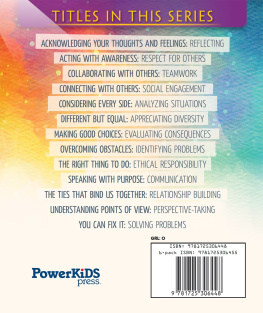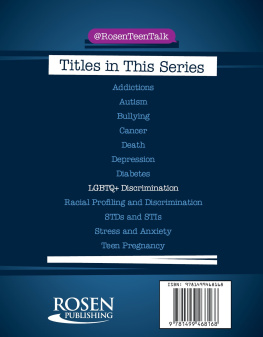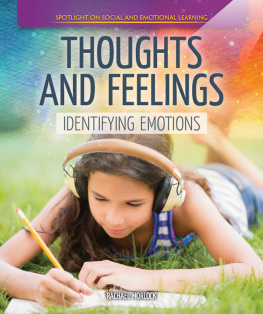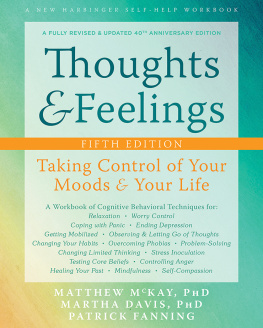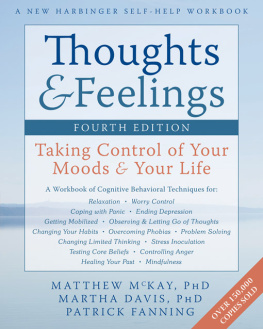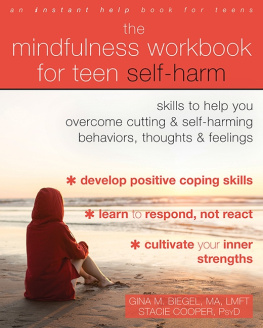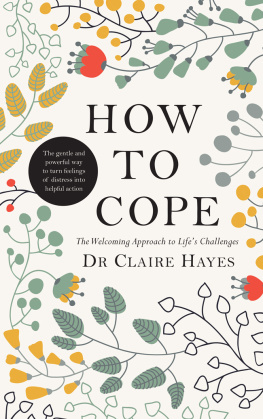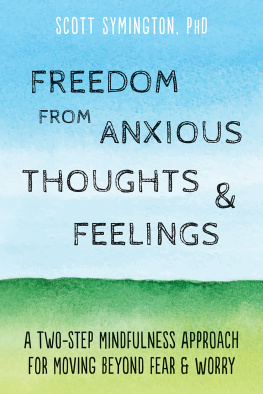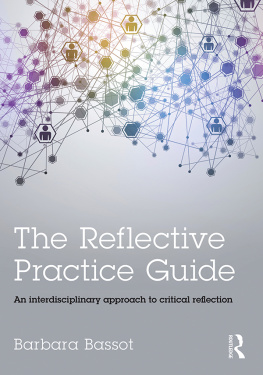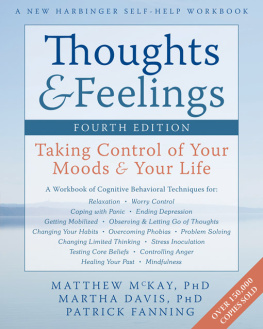
Published in 2020 by The Rosen Publishing Group, Inc.
29 East 21st Street, New York, NY 10010
Copyright 2020 by The Rosen Publishing Group, Inc.
All rights reserved. No part of this book may be reproduced in any form without permission in writing from the publisher, except by a reviewer.
Editor: Rachel Gintner
Designer: Michael Flynn
Photo Credits: Cover Tetra Images/Brand X Pictures/Getty Images; cover, pp..
Cataloging-in-Publication Data
Names: Morlock, Rachael.
Title: Acknowledging your thoughts and feelings: reflecting / Rachael Morlock. Description: New York: PowerKids Press, 2020. | Series: Spotlight on social and emotional learning | Includes glossary and index.
Identifiers: ISBN 9781725306448 (pbk.) | ISBN 9781725306479 (library bound) | ISBN 9781725306455 (6pack) Subjects: LCSH: Self-actualization (Psychology)--Juvenile literature.
Identity (Psychology)--Juvenile literature.
Classification: LCC BF637.S4 M675 2020 | DDC 158.1--dc23
Manufactured in the United States of America
CPSIA Compliance Information: Batch #CWPK20. For further information contact Rosen Publishing, New York, New York at 1-800-237-9932.
Contents
CHAPTER ONE
THE EXAMINED LIFE
A life. This practice of thinking carefully and seriously is also known as reflection.
Reflection is an important tool for building stronger connections. You can use reflection to learn more about the people around you and yourself. When you take time to reflect on your thoughts and feelings, youre more likely to understand why you have them and what to do about them.
Reflection is also a tool for making better decisions. It offers a way to look back on your past in order to improve the future. Reflection helps you learn from your mistakes. Everything you need for reflection is already within you. It just takes practice!

SOCRATES

Usually, taking some quiet time to think is the best way to reflect on your thoughts, feelings, and decisions.
CHAPTER TWO
SELF-AWARENESS
Reflecting is part of self-awareness, or how you see yourself. Self-awareness helps you understand who you are, what you need, and what your goals are. It gives you a clear idea of your strengths and weaknesses. It helps you understand how youre feeling and why. Selfawareness also gives you a clearer idea of how others see you. When youre self-aware, its easier to take charge of your feelings and make healthy choices.
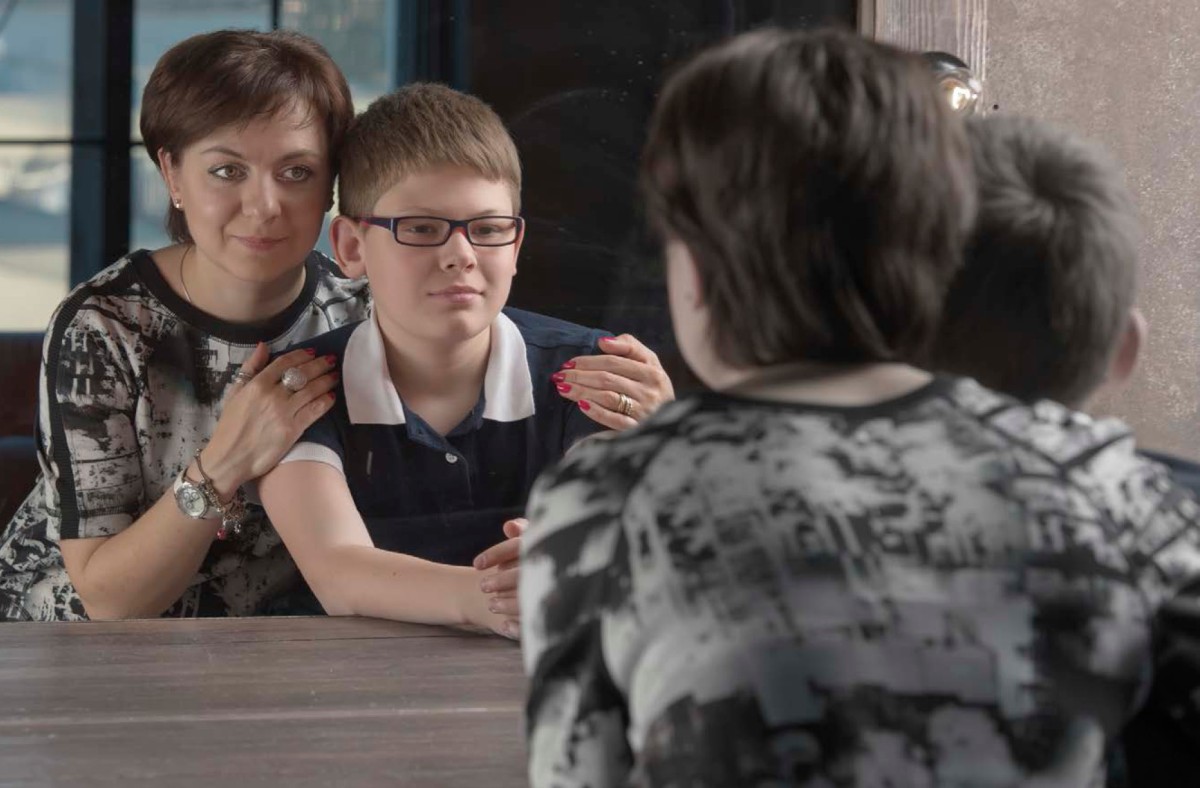
Self-reflection is about taking a good look at yourself. A mirror shows you how you look on the outside, but self-reflection helps you understand whats happening on the inside.

Greater self-awareness comes from reflecting on your thoughts, feelings, and experiences. Have you ever felt a strong emotion without really knowing why? This is a good opportunity to reflect and understand yourself better. Think about what happened and how you felt. Ask yourself why you felt that way. Taking time to think carefully about your emotions is a way of reflecting on your life.
CHAPTER THREE
THOUGHTS AND FEELINGS
Your thoughts and feelings are part of who you are. Both positive and . In these times, its especially helpful to sort through these feelings.
When you slow down to reflect, you can begin to understand more about yourself. Your thoughts and emotions give you clues about whats important to you, who you are, and who you want to be. The first step in reflecting is to acknowledge, or notice, your thoughts and feelings. Then, you can try to identify them. Can you name the emotions youre feeling? Much of the time, several emotions may be clustered together and may need to be untangled.

Identifying emotions is an important skill for gaining self-awareness. Can you recognize different emotions by the way they make you feel and by how you act?
CHAPTER FOUR
REFLECTION METHODS
Whether youre focusing on your thoughts, feelings, experiences, or decisions, there are different ways to reflect. An important key to reflection is creating a space where youre able to think. Some people might prefer to do this quietly on their own. Others might prefer to reflect by talking with a friend, teacher, or relative.


Your family could make a habit of reflecting together. At the dinner table, each of you can take a minute to think back on your day, and then you can take turns sharing the best and worst parts.
Sometimes, reflection just takes time to think. But if youre having trouble or youre not sure how to reflect, you can use tools to help. You can keep a journal to record your experiences and share your thoughts. You could also create a piece of art to show your feelings. Playing a special game might help you open up to sharing your thoughts and feelings with others. Once you find a method that works well for you, you can begin to make reflection a daily habit.
CHAPTER FIVE
REFLECTIVE DECISION-MAKING
In addition to helping you understand your thoughts and feelings, reflection also plays a role, or part, in making good decisions. Good decision-making follows a set of steps. First, you think of the situation and identify the dilemma, or problem. Next, you consider your options. After your options, you choose the best one. Youve made your decision at this point, but the process isnt finished. The final step is to reflect on your choice.
Reflection requires you to look back and study the consequences, or results, of your decision. Reflection can help you make better choices next time. It can show you whether your actions were in line with your goals. The scientist Charles Darwin believed that people had a duty to reflect. He wrote, A moral being is one who is capable of reflecting on his past actions and their of approving of some and disapproving of others.
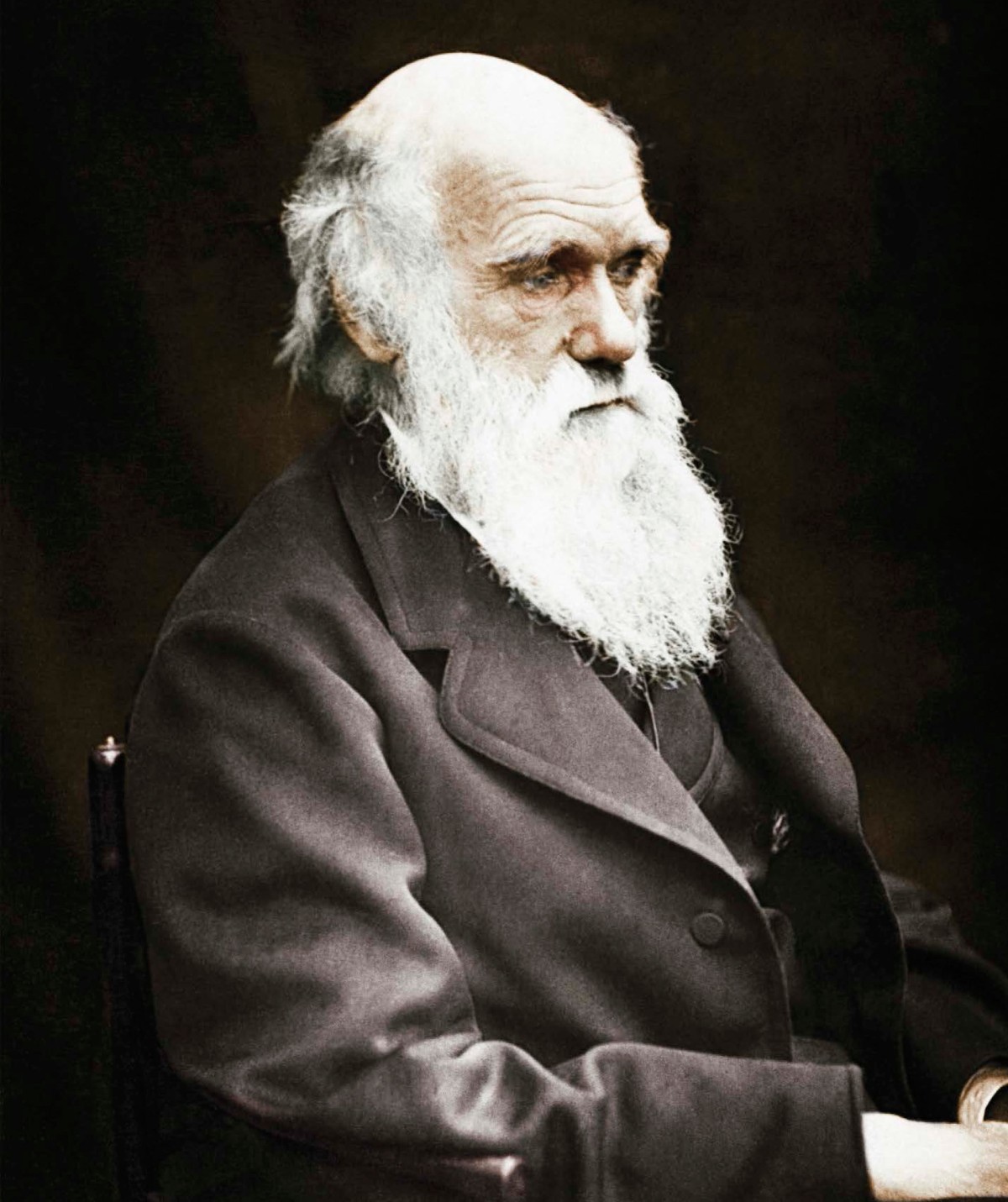
Darwin the idea of evolution by natural selection. This means that living things change over time based on features that help some survive. He also believed that people could change and improve by reflecting on their lives and choices.
CHAPTER SIX
SELF-REFLECTION
It might take some time to see the consequences of your decisions, but its never too late to reflect. Reflecting can help you find links between your actions and their results. You can reflect by thinking over what happened, what worked, and what didnt work. This prepares you for similar situations in the future.
Next page
